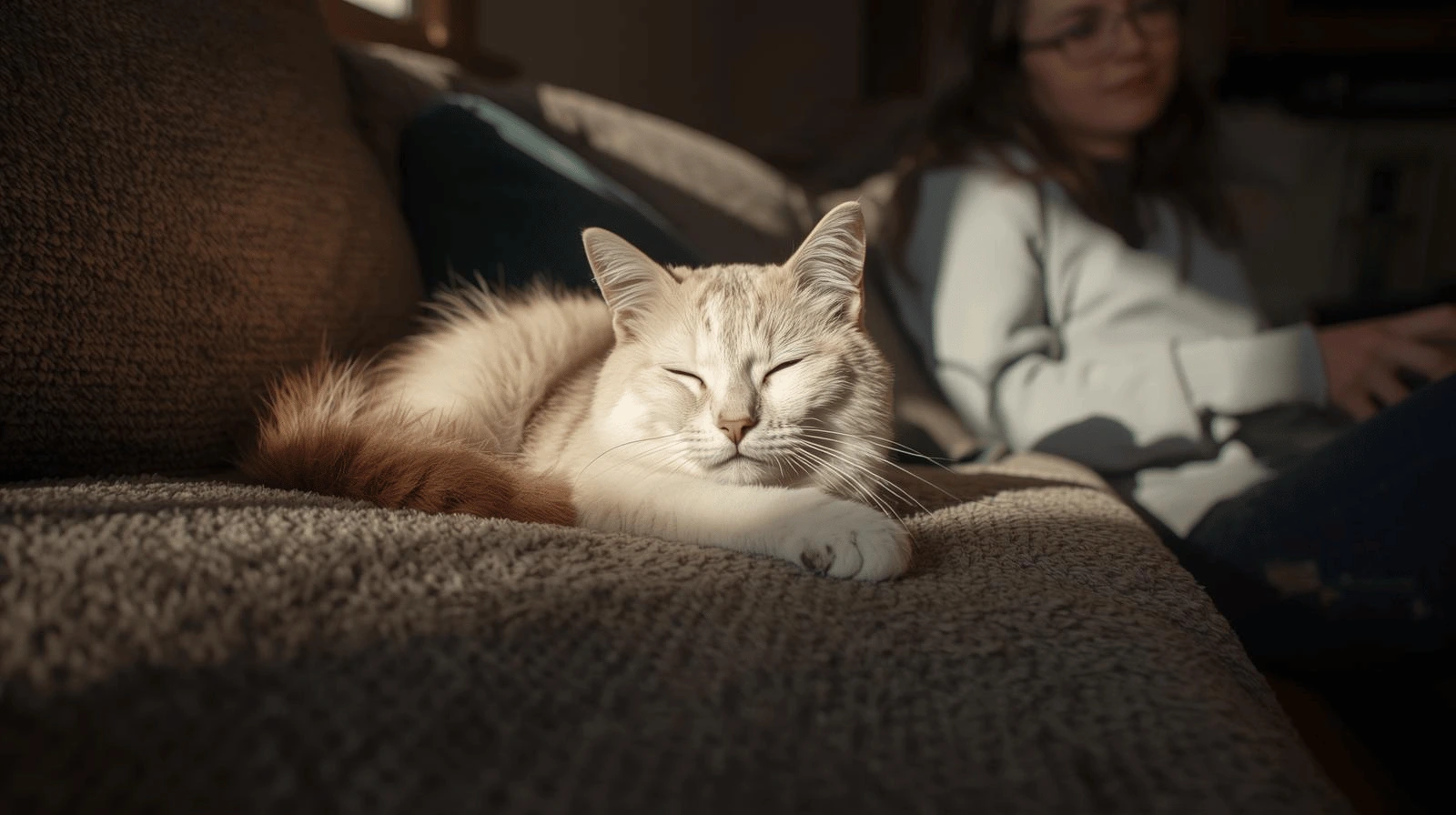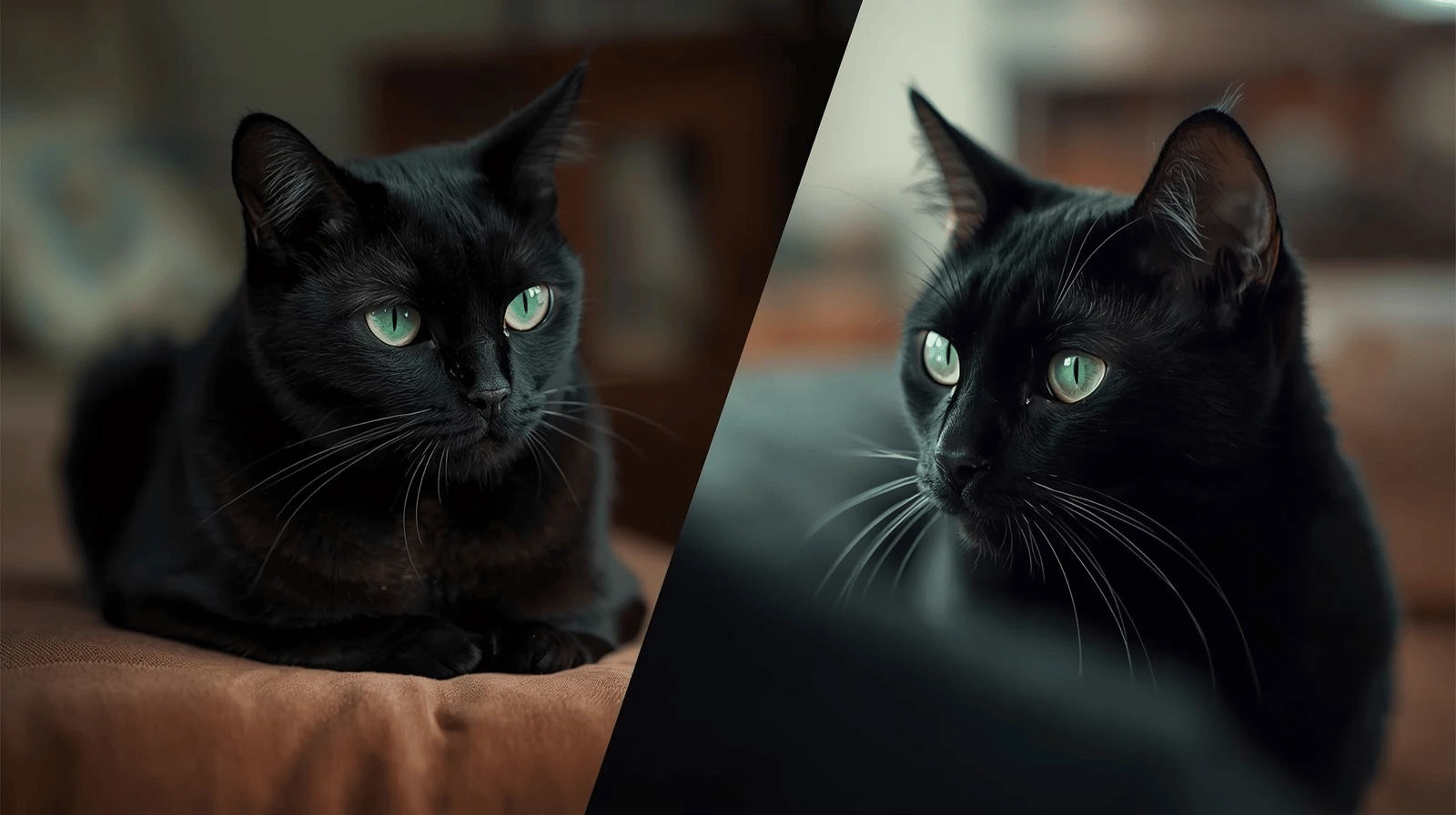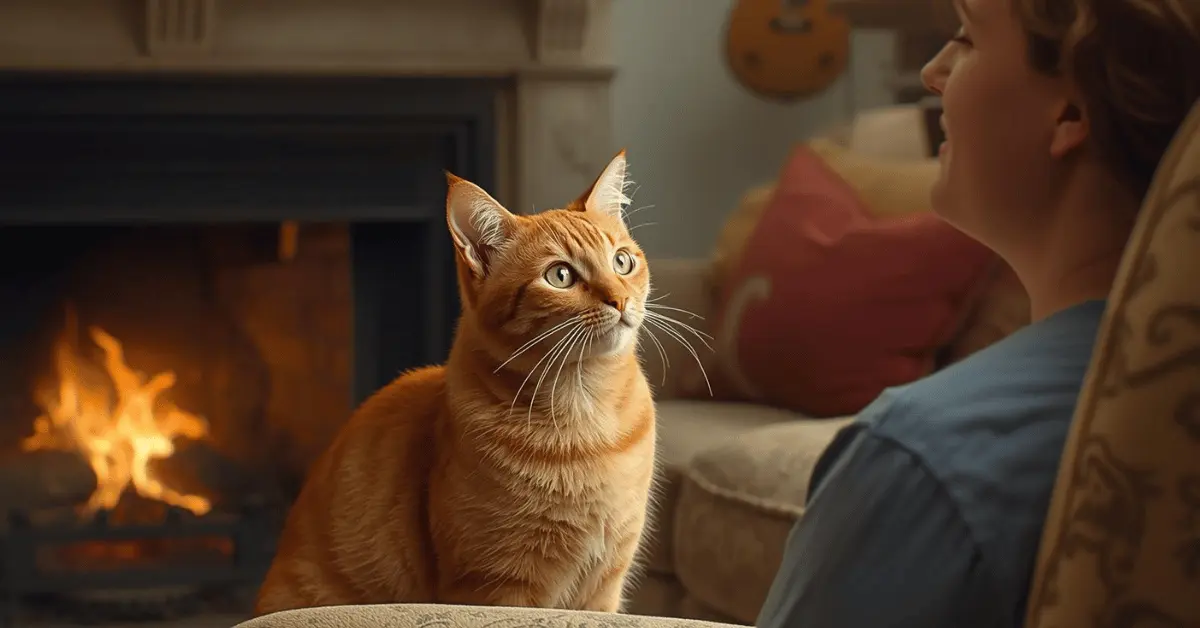Cats are often thought of as independent creatures who only interact on their own terms. But recent research suggests felines form strong emotional bonds with their owners, and one of the most fascinating aspects of this connection is voice recognition.
The truth is, cats are much more perceptive than they get credit for. They may not always come when called like a dog, but subtle cues in their behaviour reveal they know exactly when it’s you speaking.
1. Turning Their Head or Ears Toward You
Cats rely heavily on sound to navigate their environment. When you speak, especially in a familiar tone, your cat may immediately swivel their ears or turn their head in your direction.
Why This Matters
This behaviour isn’t random — it shows your voice stands out among other noises. Cats can distinguish vocal tones, and studies suggest they’re especially responsive to their owner’s unique pitch and rhythm.
2. Approaching When You Call Their Name
Some cats act indifferent, but many will walk toward their owner when called by name.
A Subtle Form of Trust
If your cat comes to you after hearing your voice, it’s a clear sign they not only recognize the sound but also associate it with comfort, food, or affection. Even if they come slowly, this demonstrates recognition and selective response.
3. Vocalizing Back to You
When cats meow or trill in response to your voice, it’s their way of communicating.
Building Two-Way Communication
Felines don’t typically meow to each other — they reserve this behaviour primarily for humans. If your cat vocalizes back after hearing you, it’s a strong indicator they know it’s you and want to “continue the conversation.”
4. Relaxing When They Hear You Speak

Your voice can have a calming effect on your cat, especially during stressful moments.
Comfort Through Familiar Sound
Cats may settle down, stop hiding, or even begin grooming themselves once they recognize your voice. This shows they associate your sound with safety and reassurance, much like a child responding to a parent’s tone.
5. Following Your Voice from Room to Room
If your cat trails behind you even when they can’t see you, it’s often because they’re following the sound of your voice.
Voice as a Guide
This is a practical sign that they distinguish your voice from other household sounds. Cats are curious and may use your voice as a navigational signal, especially when deciding where you’re going.
Related Posts
- 6 Reasons Why Your Cat Sneezes All the Time
- Why Does My Cat Scratch the Furniture? 5 Fixable Reasons
- What Is Catnip? History, Science, and Why Cats Love It
- Why Do Cats Cry Like Babies at Night? 6 Surprising Reasons
6. Showing Excitement at Your Return
When you walk in the door and greet your cat verbally, their response can be very telling.
Signs of Recognition
Cats may rush to the door, rub against your legs, or vocalize excitedly after hearing your voice. This reaction shows they not only know your sound but also associate it with your presence and affection.
7. Responding Differently to Strangers’ Voices

Cats are known for ignoring unfamiliar people, and this behavior often contrasts with how they respond to you.
Distinctive Recognition
If your cat reacts to your voice while ignoring others, it’s a sure sign of recognition. They’ve learned to differentiate your sound and respond selectively, a skill that reinforces your unique bond.
Why Cats Recognize Human Voices Differently
Unlike dogs, who were bred to obey commands, cats chose domestication on their own terms. Over thousands of years, they’ve adapted to live alongside humans, developing the ability to pick up on vocal patterns and tones.
The Science Behind It
A study published in Animal Cognition revealed that cats are able to distinguish their owner’s voice from strangers. However, their reactions tend to be subtle — a twitch of the ears, a slow blink, or a quiet acknowledgment rather than an obvious display like barking or tail wagging.
Practical Ways to Strengthen Vocal Recognition
If you’d like your cat to become even more responsive to your voice, a little training and consistency can help.
Tips for Building the Habit
- Use Their Name Frequently: Pair it with positive experiences like feeding and play.
- Keep a Friendly Tone: Cats respond best to gentle, soothing sounds.
- Link Words to Actions: Consistently say “treat” or “dinner” before mealtime.
- Reward Responses: A small treat or affection reinforces recognition.
Over time, your cat will learn to associate your voice with comfort, security, and reward.
Strengthening Voice Recognition in Your Cat
Now that you know the signs, you can encourage even stronger recognition. Speak to your cat often in a calm tone, use their name consistently, and reward them with affection or treats when they respond. Over time, this builds a stronger connection rooted in trust and communication.
For example, studies from ScienceDirect highlight that cats not only distinguish their owners’ voices but also react emotionally, further proving that vocal recognition is part of feline social bonding.
Frequently Asked Questions
Do cats know their owner’s voice?
Yes, cats can recognize their owner’s voice. Studies show they can distinguish between familiar and unfamiliar voices, even if their reactions are often subtle, like ear movements or head turns.
Can cats recognize voices over the phone?
Cats may notice your voice on the phone or a video call, but the sound quality and lack of accompanying visual and scent cues can confuse them.
How can I train my cat to respond to my voice?
Use positive reinforcement. Say their name in a calm tone before feeding or giving treats, and reward them when they respond.

1 thought on “7 Clear Signs Your Cat Recognizes Your Voice”